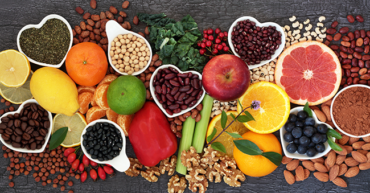June 15, 2023
Nobel Gas: Nitric Oxide

By Ram Rao, Ph.D., Principal Research Scientist for Apollo Health
A colorless gas with the formula NO, Nitric Oxide is one of the principal oxides of Nitrogen. In humans, nitric oxide is involved in several physiological and pathological processes. It was proclaimed the “Molecule of the Year” in 1992, and in 1998 the Nobel Prize in Physiology or Medicine was awarded to a trio of scientists for their seminal work on nitric oxide’s pivotal role in heart structure and function. But NO’s role goes beyond the heart as we now recognize its importance in preventing brain fog and other cognitive issues.
Nitric oxide (NO) is a gas molecule that is produced by the body. Too much NO can cause several degenerative conditions. However, this toxic gas is a very important signaling molecule in living organisms, including the human body. While it has numerous physiological roles, the two most important functions attributed to NO are (1) to relax the inner muscles of the blood vessels, causing them to widen and increase blood circulation (known as vasodilation), and (2) to control the release of oxygen from red blood cells into the tissues that need it. NO is the key to optimal oxygen delivery.
NO is normally made by endothelial cells that line the blood vessels. It plays an important role in maintaining the normal function of blood vessels by keeping them open and preventing damage from fat deposits in the bloodstream. Physical exercise and climbing higher altitudes trigger the release of NO that, in turn, dilates the blood vessels, increases the blood flow, and releases oxygen from the blood to muscles and other tissues that need it. Nasal breathing also produces NO, which improves the ability of the lungs to absorb more oxygen and also helps to combat viral or bacterial infection.
In the central nervous system, NO acts as a signaling molecule that promotes synaptic transmission and contributes to learning and memory. NO transmits information between brain cells, and this function is ideal, especially in those neurons that lack active synaptic inputs. In addition, NO acts like a neurotransmitter and facilitates the proper blood supply to the neurons. This prevents “brain fog” or cognitive difficulties.
As we age, NO levels decline, resulting in endothelial dysfunction. As a result, blood vessels are unable to widen, resulting in poor blood supply. This can lead to high blood pressure, abnormal blood clotting, and cardiac issues, increasing the risk of dementia and cognitive decline. Furthermore, NO has a short half-life and gets metabolized and quickly eliminated from the bloodstream suggesting the need to boost the levels of NO in the body, especially among older adults.
Humans make NO from various precursor components, including vitamin C and nitrates. Lack of these components results in subnormal levels of NO, impacting the circulatory system, heart function, memory, and muscle performance. While NO supplements provide many potential benefits, another simple way to get NO is by consuming the building blocks of NO as part of the diet. Research suggests that getting nitrates from vegetables is a particularly effective method of improving NO levels. Beet greens are well-known for being a rich source of nitrates which are converted into NO in the vascular endothelium. Other vegetables that are also rich in nitrates include dark, leafy greens, especially arugula, cilantro, lettuce, basil, Swiss chard, and rhubarb. In addition, physical exercise keeps endothelial cells and blood vessels healthy by increasing the body’s natural ability to produce NO.
Thus a diet high in nitrate-rich vegetables and exercising regularly are beneficial ways to boost the body’s natural production of NO. Its ability to relax the blood vessels and improve tissue oxygenation and its role in learning and memory underscores the importance of this gaseous molecule. So let us say Yes to NO.




